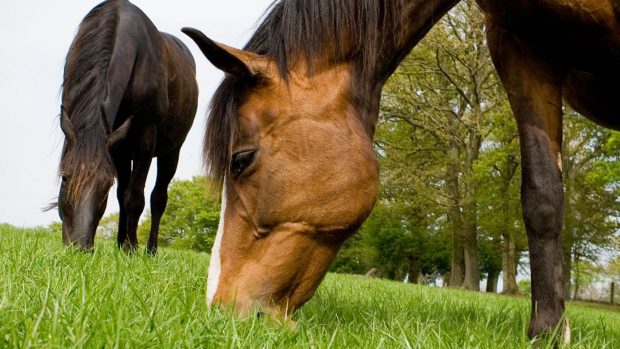Endurance riding is the sport which comes closest to mimicking the long distances travelled by the evolutionary horse. The sport varies from rides where the distance is not covered at any great speed, to races, where speed is critical.
Top endurance horses possess huge amounts of stamina and have the muscle design to suit this. A fit endurance horse uses oxygen to burn dietary fat to fuel muscle movement, which is why oil features in many endurance horses’ diets.
Importance of fibre
Do not ignore fibre either. At tissue level, the end product of fibre digestion is fat, which a long-distance horse is adapted to use. Digestion of fibre takes place slowly, releasing energy evenly over 24 hours.
In addition, fibre appears to bind water as it passes through the gut, acting as a fluid reservoir. Major reductions in fibre supply usually mean starch-based high-energy feeds are fed instead, potentially causing azoturia.
Azoturia can be a problem in endurance horses, as riders strive to keep a balance of fibre, starch and electrolytes. Water and electrolytes are critical and are quickly lost when travelling and competing. Always offer water during travelling and during the race to prevent dehydration.
Feeding for stamina
If you are covering large distances slowly a low-energy feed is sufficient as this is what a horse is designed to do. It’s only when you go faster that extra feed counts.
Feeding a fibre and oil diet rather than a high starch one will help maintain stamina. The fibre is digested to give a slow-release energy over a longer period of time and, providing a suitable adaptation period is given, oil can be utilised by the muscles in preference to glucose from starch.
This method enables glucose to be conserved, allowing the horse to work longer before it reaches fatigue. Between 6-8% of hard feed can be fed as oil, but try not to exceed this – too much oil makes any horse fat!




